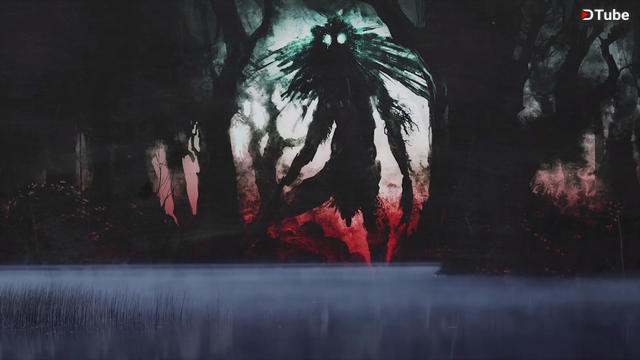
A shadow one could say is simply the dark area produced by some object coming between rays of light and a surface. But for someone like Carl Jung the shadow signifies a far more literary personification. The shadow is perceived as an entity of its own that is welded and chained within the realm of our deep unconscious mind. A dark spectre that we all possess, but also one too frightening for many to ever build the courage to face. A spectre that can never be defeated, but if tamed can lead to personal cultivation and the evolution of the mind and body.
But what is the Shadow? According to Jung the shadow possess the most inferior characteristics of the psyche that all men try to relinquish. The shadow might be a desire frowned on by our conscience or peers. It could be a bizarre or unhealthy interest that the powers of civilization have apparently quelled.
Shadow contents involve known and unknown aspects of the self, making the ego, the unconscious and the environment all play a role in its expression or repression. When confronted by the ego the largely unconscious shadow can be integrated into consciousness. But, for the most part, the shadow lies beyond the threshold of awareness.
it is quite within the possibility for a man to recognize the relative evil of his nature, but it is a rare and shattering experience for him to gaze into the face of absolute evil.¹
It is a frightening thought that man also has a shadow side to him, consisting not just of little weaknesses- and foibles, but of a positively demonic dynamism. The individual seldom knows anything of this; to him, as an individual, it is incredible that he should ever in any circumstances go beyond himself. But let these harmless creatures form a mass, and there emerges a raging monster; and each individual is only one tiny cell in the monster's body, so that for better or worse he must accompany it on its bloody rampages and even assist it to the utmost.
Jung also stresses the importance of externalizing shadow material through socially acceptable channels to bring its inherent darkness to light.
The ego is able to integrate rather than repress unpleasant unconscious impulses. When merely repressed, the shadow finds a way through the cracks of the psyche and jumps out in disturbing ways.
Given that every human being has a wide variety and range of traits, impulses, and emotions, every individual by necessity has a shadow. Some of these characteristics are repressed and hidden, both to one’s self and to others – to one’s self so that one can navigate through life with the conviction that one is a wholly good and virtuous human being, and to others so that one can fit in and succeed socially.
“Unfortunately there can be no doubt that man is, on the whole, less good than he imagines himself or wants to be. Everyone carries a shadow, and the less it is embodied in the individual’s conscious life, the blacker and denser it is. At all counts, it forms an unconscious snag, thwarting our most well-meant intentions.”
When one’s shadow is relegated to the depths of the unconscious, it can wreck havoc on one’s life in the sense that it will exert unconscious control over one’s thoughts, emotions, choices, and actions.
“That which we do not bring to consciousness appears in our lives as fate”, as Jung said. This accounts for the self destructive behaviors so many individuals struggle with and are unable to control despite consciously knowing they would be better off not engaging in such actions.
The task in life which thus confronts everyone, according to Jung, is to become conscious of and integrate one’s shadow into one’s conscious personality: accepting it with open arms not as an abhorrent aspect of one’s self, but as a necessary and vital part of one’s being.
“One does not become enlightened by imagining figures of light, but by making the darkness conscious.
The concept of the shadow has been both championed and critiqued among opposing perspectives.
Most theologians say we cannot solely rely on ourselves and the limited power of the ego to deal with the shadow. Instead, we must call on the power of God to overcome evil.
“You can’t do it alone… lean on the Lord!” the religious person exclaims.
Meanwhile, Jungians warn of a ‘projection trap’ that some traditional religious persons seem to fall into. Jungians tend to say that sanctimonious individuals and related religious organizations project their own dark impulses onto others instead of facing the evil within themselves.
▶️ DTube
▶️ IPFS
Hi
Hello.